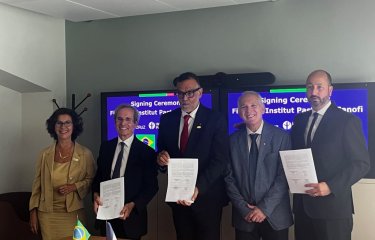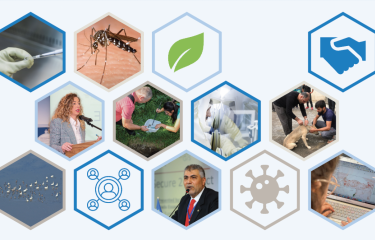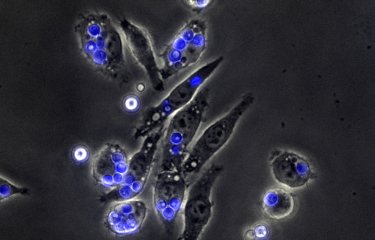A group of scientists are in the process of setting up the first crew of a research taskforce in Brazil, spawn of the University of São Paulo/Institut Pasteur /Fiocruz tripartite agreement signed in 2015. This scientific platform will focus on neurological disorders caused by either infectious agents or as a consequence of degenerative/progressive diseases. Both causes are growing problems in Brazil.
The ageing Brazilian population will be associated with an increased prevalence of neurodegenerative pathologies in the next few decades. The circulation of emergent viruses such as Dengue, Zika, Chikungunya, Mayaro whose infection can lead to severe brain impairment has also increased. In addition, there are potential new coming encephalitic agents (such as West Nile and Saint Louis virus), as well as serious re-emergent diseases such as yellow fever. Underestimated neurological commitment may also appear in systemic neglected diseases such as leishmaniasis and trypanosomiasis, which place the brain and infection-related neuroinflammation research as a top priority. The climate change currently taking place in the world, which has an influence on the migration of the vectors of these diseases, is of capital importance in the studies leading to the emergence of these plagues.
Coordinated by Dr Paola Minoprio from the Institut Pasteur, the new research platform will associate scientists from University of São Paulo and Oswaldo Cruz Foundation (1). Adopting a One health approach they will implement research programs dedicated to the study of these complex health issues. The crew already has a long track record on the subject as they were directly involved on the recent demonstration of the causal relation between Zika virus and microcephaly and collaborated on the development of vaccines and diagnostic tools for this newly emerged agent.

Caption: built on the campus of the University of São Paulo, the research platform Pasteur-USP will eventually host up to 80 researchers.
Since 2017, they have also been tackling the challenge imposed by the significant outbreak of yellow fever virus (YFV), which comes back to the urban centers in Brazil after almost a century. The infection is particularly rampant in the City of São Paulo, the largest urban conurbation of the southern hemisphere with around 18 million inhabitants. As an important outcome, the group and its collaborators were already able to show that Sofosbuvir (an antiretroviral drug which is effective in clearing Hepatitis C virus) can reduce YFV and ZIKV replication in experimental setups. This resulted in a compassionate treatment for yellow fever and showed promising mitigating effects on humans. The group caterers long lasting expertise on classical and molecular epidemiology, systems biology and immunology, evolutionary, cell and molecular biology, high security level laboratories and field operations. In addition, they will integrate and implement tested and tried routines of experimentation involving in vivo and in vitro 3- and 2-D imaging systems. Under a One Health concept, the new center will be an optimal and fruitful shell for intense ongoing collaborative research across several continents.
(1) Paolo Zanotto, Edison Durigon and Eduardo Massad, Patricia Beltrão Braga, Helder Nakaya, Pedro Teixeira





